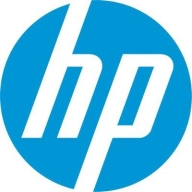

HP Wolf Security and VIPRE Endpoint Security both protect and manage endpoints effectively. HP Wolf Security is favored for its pricing and support, while VIPRE Endpoint Security is preferred for its advanced feature set.
Features: HP Wolf Security features robust threat detection, strong zero-day threat protection, and effective containment. VIPRE Endpoint Security includes comprehensive malware protection, advanced machine learning capabilities, and extensive customization options.
Room for Improvement: HP Wolf Security needs to improve its reporting tools, integration capabilities, and overall interface. VIPRE Endpoint Security requires a more intuitive configuration process, better real-time threat analysis updates, and a streamlined user experience.
Ease of Deployment and Customer Service: HP Wolf Security is praised for its straightforward deployment process and responsive customer support. VIPRE Endpoint Security offers a similarly easy setup but has a steeper learning curve due to its extensive feature set. VIPRE's customer service is highly regarded, with comprehensive support resources.
Pricing and ROI: HP Wolf Security is viewed as cost-effective, offering valuable features for its price. VIPRE Endpoint Security is more expensive but users find the ROI justifiable because of its advanced features and protective capabilities.
| Product | Market Share (%) |
|---|---|
| HP Wolf Security | 5.9% |
| VIPRE Endpoint Security | 0.5% |
| Other | 93.6% |
| Company Size | Count |
|---|---|
| Small Business | 3 |
| Large Enterprise | 5 |
HP Wolf Security is a comprehensive cybersecurity solution that bolsters your organization's cyber-resilience on multiple fronts. With its full-stack security approach, it ensures layered protection from hardware to the cloud, providing a robust defense against cyber threats. HP Wolf Security introduces endpoint isolation, a cutting-edge feature that effectively halts threats that may go unnoticed by Next-Generation Antivirus (NGAV) and Endpoint Detection and Response (EDR) systems. Moreover, it extends its security coverage to printers, equipping them with advanced detection and self-healing capabilities to further safeguard your digital ecosystem. This integrated solution streamlines IT and security risk management, resulting in fewer alerts and false positives, and reduces the time and effort required for endpoint incident analysis and remediation. Notably, HP Wolf Security prioritizes productivity, allowing you to manage risk without disrupting the user experience, enabling worry-free work from anywhere, and offering rapid IT disaster recovery at scale.
VIPRE Endpoint Security provides fast, powerful and easy-to-manage endpoint protection for businesses of all sizes, with a small footprint that won't slow you down.
We monitor all Endpoint Protection Platform (EPP) reviews to prevent fraudulent reviews and keep review quality high. We do not post reviews by company employees or direct competitors. We validate each review for authenticity via cross-reference with LinkedIn, and personal follow-up with the reviewer when necessary.